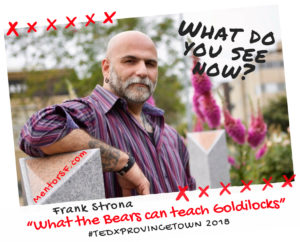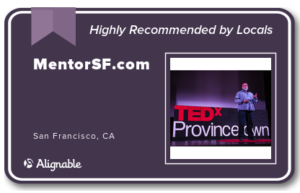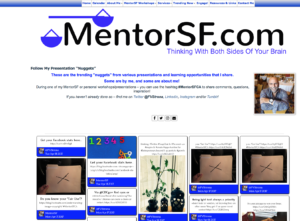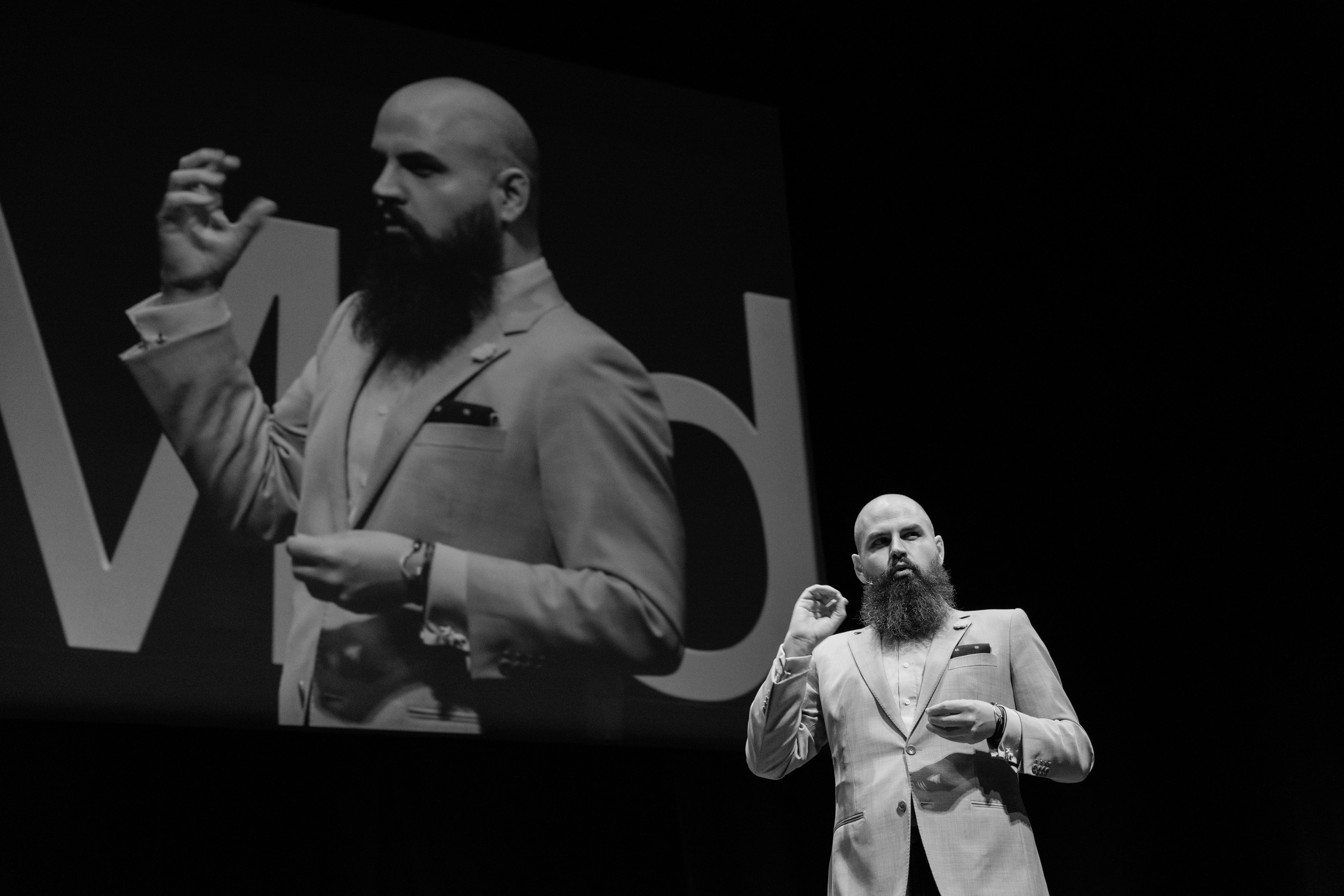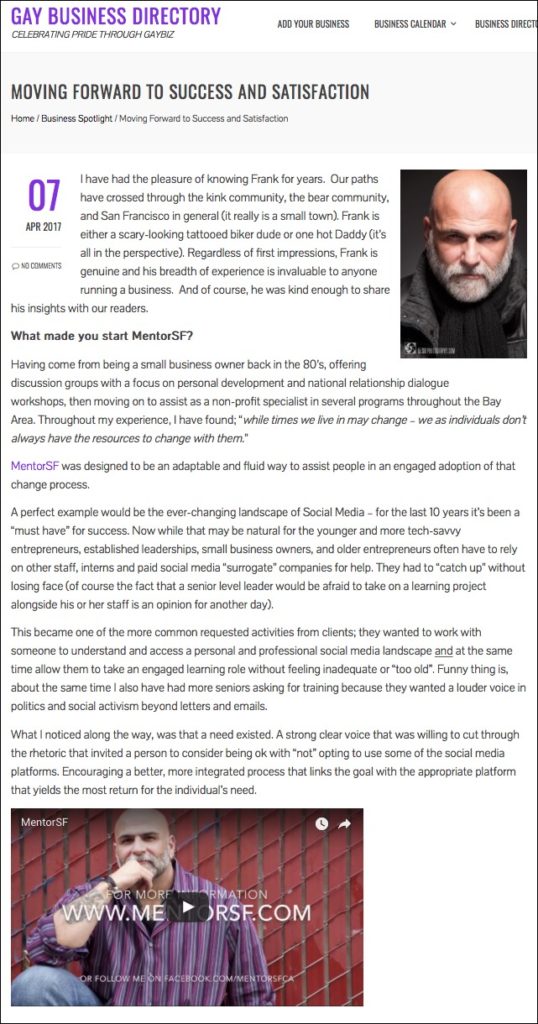
Ed. Note: I recently came across the original of this post, which I wrote several years ago for a workshop series I was doing on “Burnout” and a corresponding feature magazine. While reviewing it, it struck me as well worth taking some time to revise. Updating and expanding on some of the “lessons learned” based on my own life experiences and those from clients with whom I have had the pleasure to assist since.
This isn’t the only way to see or navigate through “Burnout” of any kind. This is just one lens I found helpful and others have resonated with, so I offer it to you in the spirit of sharing and encourage you consider this a “gift of experience”.
As with any activity that takes up large amounts of time and effort, staying a sexually active, aware, and engaged person can reach a stage in your life when it begins to lose some texture and meaning. When this happens, these moments feel less pleasurable and satisfying. For you “my sex is fine, thank you,” readers out there, you can replace the word “sex” with work, love, volunteering etc.
 For many people, the warning signals or “flags” that pop up when in burnout are buried under the many levels of stress that we all operate under on a day to day basis. The potential outcome can range from a loss of enjoyment or satiation, reduction in sex-seeking, or even poor negotiations with a sexual partner. Left unchecked, it also could be the basis for relationships to change, leading to a growing sense of isolation and an overwhelming feeling of unhappiness with yourself and/or friends.
For many people, the warning signals or “flags” that pop up when in burnout are buried under the many levels of stress that we all operate under on a day to day basis. The potential outcome can range from a loss of enjoyment or satiation, reduction in sex-seeking, or even poor negotiations with a sexual partner. Left unchecked, it also could be the basis for relationships to change, leading to a growing sense of isolation and an overwhelming feeling of unhappiness with yourself and/or friends.
The reality of being “burnt-out,” whether emotionally, physically, professionally, mentally and/or sexually, doesn’t just “happen.” It slowly accumulates over a period of time until a sense of awareness emerges that some activities have begun to hold less of our attention or interest. We may find ourselves with a reticence to be available to others and lacking the motivation to continue relationships and activities. Being “burnt-out” isn’t a place you have to stay in or have to even go to, but it does mean having a daily awareness of how you feel.
Had I known some of these tips I am sharing below, and kept the list handy when it happened to me, I could have saved myself time, money and self-doubt over the months that followed. But what I did learn was some of the following ways of keeping my own love and sex life fresh and exciting. More importantly, I learned to give back to myself as much as I give out.
Below is just a few personal queries that I have learned that help to identify the potential “flags” to burn-out, and some thoughts on how to transition through it. If you have a serious situation or need further support, I suggest you contact a friendly therapist to help you negotiate this journey.
The MentorSF Self Assessment for “Burners To Be”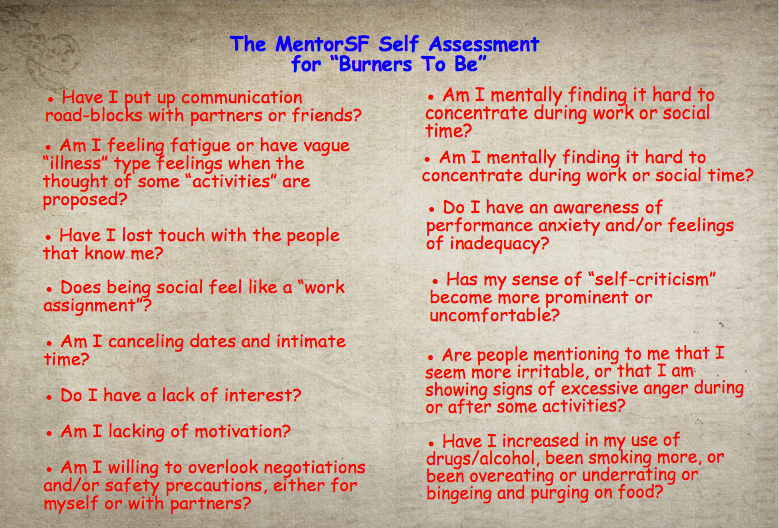
I found that keeping this list handy, and visible in a place you can occasionally glance at, is a good way to “check yourself” without obsessing over it. Just the simple glance at some of these statements can serve as a reminder of the art of engaged self-examination and is a useful guide for routine personal care.
- Does being social feel like a “work assignment”?
- Am I canceling dates and intimate time?
- Do I have a lack of interest?
- Am I lacking motivation?
- Am I feeling fatigue or have vague “illness” type feelings when the thought of some “activities” are proposed?
- How in-touch with people do I remain?
- Have I put up communication road-blocks with partners or friends?
- Am I mentally finding it hard to concentrate on work or social time?
- Has coming up with new ideas become difficult?
- Am I creating ways to establish “detachments” from friends, memberships or activities?
- Am I overbooking myself?
- Have I noticed an inability to say “No” to partners?
- Do I have an awareness of performance anxiety and/or feelings of inadequacy?
- Has my sense of “self-criticism” become very loud, er or uncomfortable?
- Are people mentioning to me that I seem more irritable, or that I am showing signs of excessive anger during or after some activities?
- Have I increased my use of drugs/alcohol, been smoking more, or been overeating or underrating or bingeing and purging of food?
- Am I willing to overlook negotiations and/or safety precautions, either for myself or with partners?
Get your printable Self Assessment here: MentorSF Self Assessment for “Burners To Be”
15 Reminders For Staying Engaged & Present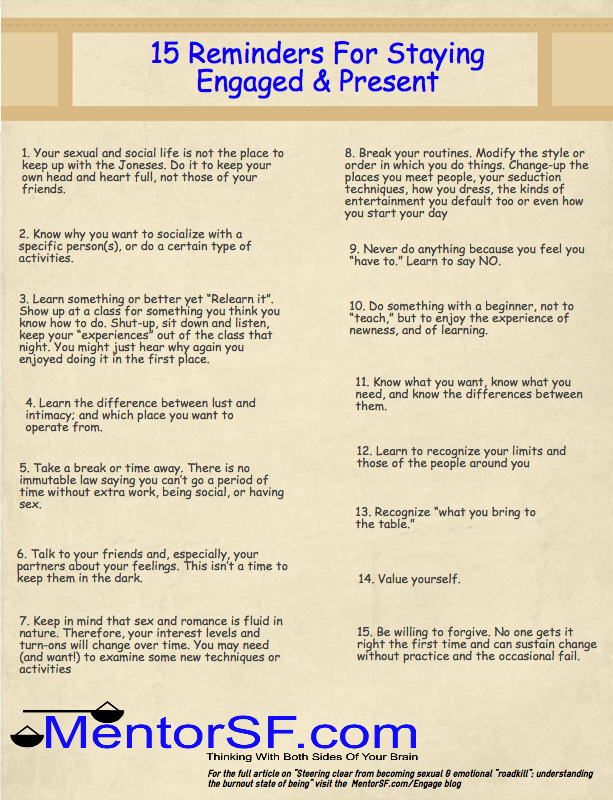
There are lots of ways to keep your life fresh, vibrant, and exciting. But they all take a first step, which you have to do for yourself, in your own time and using ways that feel right for you. Over the years, I have experienced (or spoken with friends who have tried) various techniques. One that seems to be continually mentioned is learning how to limit yourself to those experiences about which you feel safe and good, and to recognize the amount of intimacy and awareness you need to stay present and fulfilled. Take a look at my top 15 reminders below. (But remember, this list is not complete, and should not be used as a replacement for a trained
professional therapist.)
- Your sexual and social life is not the place to keep up with the Joneses. Do it to keep your own head and heart full, not those of your friends.
-
Know why you want to socialize with a specific person(s), or do a certain type of activities.
-
Learn something or better yet “Relearn it”. Show up at a class for something you think you know how to do. Shut-up, sit down and listen, keep your “experiences” out of the class that night. You might just hear why again you enjoyed doing it in the first place.
-
Learn the difference between lust and intimacy, and know which place you want to operate from.
-
Take a break or time away. There is no immutable law saying you can’t go a period of time without extra work, being social, or having sex.
-
Talk to your friends and, especially, your partners about your feelings. This isn’t a time to keep them in the dark.
-
Keep in mind that sex and romance is fluid in nature. Therefore, your interest levels and turn-ons will change over time. You may need (and want!) to examine some new techniques or activities.
-
Break your routines. Modify the style or order in which you do things. Change-up the places you meet people, your seduction techniques, how you dress, the kinds of entertainment you default too or even how you start your day.
-
Never do anything because you feel you “have to.” Learn to say “NO”.
-
Do something with a beginner, not to “teach,” but to enjoy the experience of newness, and of learning.
-
Know what you want, know what you need, and know the differences between them.
-
Learn to recognize your limits and those of the people around you.
-
Recognize “what you bring to the table.”
-
Value yourself.
-
Be willing to forgive. No one gets it right the first time and can sustain change without practice and the occasional fail.
Remember – changing patterns takes consistency and rime. It’s a a valuable contribution of energy to yourself so don’t try to cheat it.
Get your printable reminder list here: 15 Reminders for staying Engaged and Present via MentorSF.com
You Do Have It Within You
None of these ideas are unique. Most of us can have a personal “Aha!” moment at any given time. My thinking behind this list is to help you explore different tools to keep in your conscious thoughts while working through your burnout period. Now, ask yourself, “How can I practice more than five from this list daily or weekly?!”
